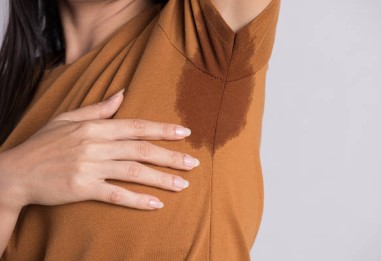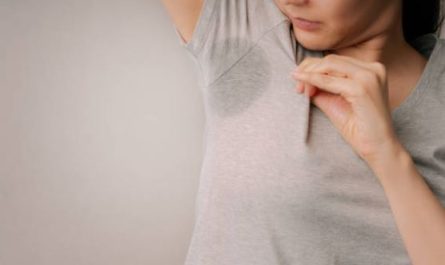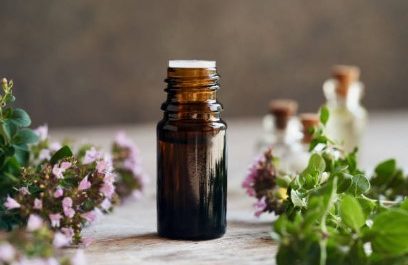If you’re experiencing persistent underarm odor despite using deodorant, there are a few reasons why this might be happening. Here are some possible causes and solutions.
Bacterial overgrowth
Underarm odor is primarily caused by the bacteria that naturally reside on our skin breaking down sweat. Sometimes, certain bacteria can become overgrown, leading to stronger odor. To address this, you can try an antibacterial soap or cleanser specifically formulated for underarms. Additionally, using an antiseptic solution, such as hydrogen peroxide, diluted with water on a cotton pad can help reduce bacteria.
Ineffective deodorant
Some deodorants may not be effective at controlling odor for everyone. Consider trying a different deodorant brand or switching to an antiperspirant, which can help reduce sweat production. Look for antiperspirants that contain aluminum chloride or aluminum zirconium, as they are effective in minimizing sweat and odor.
Certain Dri Everyday Strength Clinical Antiperspirant Solid Deodorant, Hyperhidrosis Treatment for Men & Women, Morning Fresh, 2.6oz, 3 Pack
Sweating
If you tend to sweat excessively, the combination of sweat and bacteria can contribute to stronger odor. Consider using clinical-strength antiperspirants or applying antiperspirant multiple times throughout the day to help control sweating.
Diet and lifestyle factors
Certain foods, such as onions, garlic, and spicy foods, can cause more pronounced body odor. Avoiding these foods or reducing their consumption may help. Additionally, stress, alcohol consumption, and smoking can also contribute to stronger body odor. Adopting a healthy lifestyle with a balanced diet, regular exercise, and stress management techniques may help reduce overall body odor.
Clothing and hygiene practices
Tight-fitting clothing can restrict airflow and trap sweat, contributing to odor. Opt for loose-fitting, breathable fabrics like cotton. Make sure to wash your underarms thoroughly with soap and water during showering, and change clothes regularly, especially if you’ve been sweating.
If you’ve tried these suggestions and are still experiencing persistent underarm odor, it may be beneficial to consult a dermatologist or healthcare professional. They can evaluate your situation further and provide personalized recommendations and potential treatment options.
How to know if armpit odor is cause by Bacteria?
Determining whether armpit odor is caused by bacteria can be challenging without professional analysis. However, there are a few signs that can suggest bacterial involvement:
Strong and pungent odor – Bacterial breakdown of sweat produces a distinct and often foul-smelling odor. If the odor is particularly strong, even shortly after showering or applying deodorant, it may indicate bacterial activity.
Persistence despite good hygiene – If you consistently practice good hygiene, including regular washing of the underarms with soap and water, and yet the odor persists, it could be a sign of bacterial involvement.
Changes in odor intensity – If you notice that the intensity of the underarm odor fluctuates, with particularly strong odor occurring after activities that cause sweating, it could indicate bacterial activity.
Other signs of bacterial infection – In some cases, bacterial overgrowth can lead to underarm skin infections, such as folliculitis or cellulitis. If you notice symptoms like redness, swelling, pain, or discharge in the underarm area, it’s advisable to seek medical attention.
While these signs can indicate bacterial involvement, it’s important to note that underarm odor is multifactorial, and other factors, such as diet, hormonal changes, and personal hygiene practices, can contribute as well. If you’re concerned about persistent underarm odor, it’s best to consult a dermatologist or healthcare professional for an accurate diagnosis and appropriate treatment recommendations. They can perform tests, such as a skin culture or examination under a microscope, to confirm bacterial involvement if necessary.
What is the Medicine for Armpit Odor caused by Bacteria?
In cases where armpit odor is caused by bacteria, the primary approach to treatment is through the use of topical antibacterial agents. Here are a few examples of medicines or treatments that can be used to address armpit odor caused by bacteria:
Antibacterial soaps or cleansers
Using antibacterial soaps or cleansers specifically formulated for the underarm area can help reduce the population of odor-causing bacteria. Look for products containing ingredients like triclosan, benzoyl peroxide, or chlorhexidine.
Topical antibiotics
In more severe cases of bacterial overgrowth or infection, a dermatologist may prescribe topical antibiotics. These medications, such as clindamycin or erythromycin, help kill the bacteria responsible for the odor.
Antibacterial creams or ointments
Antibacterial creams or ointments can be applied to the underarm area to target the bacteria directly. These topical treatments typically contain ingredients like mupirocin or bacitracin.
Prescription-strength antiperspirants
Some prescription-strength antiperspirants also have antibacterial properties. These antiperspirants often contain aluminum chloride or other ingredients that help reduce sweat production while targeting the bacteria on the skin.
It’s important to note that the use of these medicines or treatments should be guided by a healthcare professional, such as a dermatologist. They can assess your specific situation, determine the underlying cause of the odor, and recommend the most appropriate course of treatment. Additionally, they may also evaluate and address any potential underlying skin conditions or infections that could be contributing to the issue.
Examples of Armpit Deodorant for persistent odor
If you’re experiencing persistent armpit odor, despite practicing good hygiene, there are several deodorants available that are specifically formulated to address strong or persistent body odor. Here are a few examples:
Certain Dri Prescription Strength Clinical Antiperspirant
Certain Dri is a popular brand known for its clinical-strength antiperspirants. They offer effective protection against sweat and odor, including their Prescription Strength Clinical Antiperspirant, which contains 12% aluminum chloride.
Native offers a range of deodorants made with natural ingredients. They have a variety of scents to choose from and provide long-lasting odor protection. They also offer a sensitive skin formula for those with more delicate underarm skin.
Dove Clinical Protection Antiperspirant Deodorant
Dove Clinical Protection is formulated with 20% aluminum zirconium to provide strong protection against sweat and odor. It offers long-lasting freshness and is suitable for those who experience excessive perspiration.
Dove Clinical Protection Anti-Perspirant Deodorant Solid, Cool Essentials 1.70 oz (Pack of 3)
Secret Clinical Strength Antiperspirant Deodorant
Secret Clinical Strength is a popular choice for individuals dealing with persistent underarm odor. It offers powerful wetness and odor protection, providing all-day freshness and confidence.
Mitchum Clinical Antiperspirant Deodorant
Mitchum Clinical is known for its strong antiperspirant properties. Their clinical-strength formula offers 48-hour protection against sweat and odor, helping to keep you dry and fresh.
Arm & Hammer Essentials Solid Deodorant
Arm & Hammer Essentials offers a natural deodorant option that contains baking soda to help neutralize odor. It provides reliable odor protection and is free from aluminum, parabens, and artificial fragrances.
It’s important to note that everyone’s body chemistry is unique, and what works for one person may not work for another. You may need to try different brands and formulations to find the one that effectively manages your persistent armpit odor. Additionally, consider consulting with a dermatologist or healthcare professional if you’re experiencing persistent odor that does not respond to over-the-counter deodorants. They can provide further guidance and recommend appropriate treatments.










